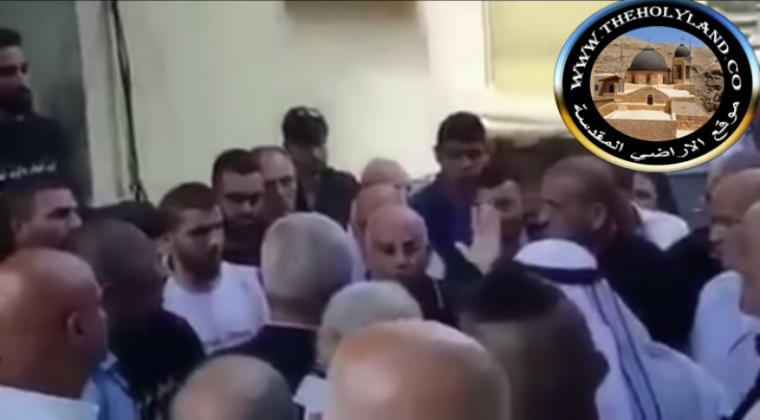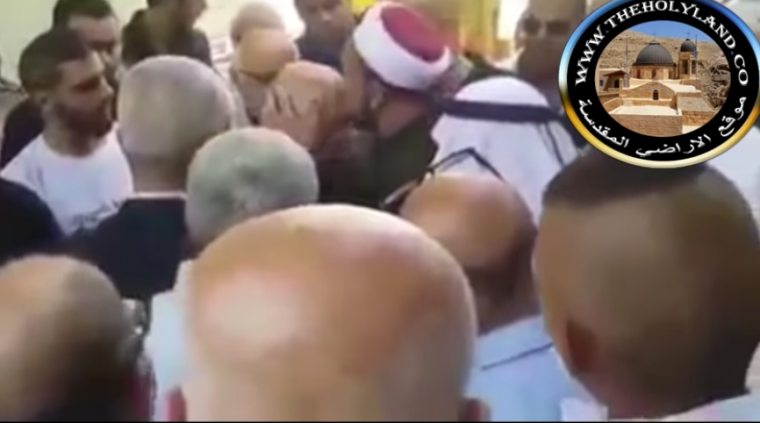'I do not have an enemy': An Israeli pastor's powerful testimony of forgiveness after the death of his son
There's no greater tragedy for a parent than to lose a child. But the blow that struck a pastor and his wife from a village near Nazareth has led to the gospel being shared in a powerful way as their testimonies have gone viral.
Michael and Lubna had one child, their son Jonathan, born after several years of marriage. Aged only 24, Jonathan was living with his parents, who had arrived home after a week's holiday in Sinai. When Jonathan drove home, he became involved in an altercation with some men over parking his car. It escalated into a fight in which Jonathan was stabbed and killed. His parents had to watch him bleed to death.

At the funeral, Michael shared a heartbreaking public prayer in front of his son's body. He thanked God for his goodness and for his perfect will, even though he admitted he did not understand why he had allowed it to happen.
The short video of his prayer was posted on Facebook and shared by many people, who were astonished by the faith of this man.
The story has been told by Bader Mansour, an executive with the Association of Baptist Churches in Israel, for the Come and See website.
He says: 'I was able to visit Michael and Lubna with a group of pastors from the area. We came to pay our condolences and to encourage them. One of the pastors shared about grief, and we all prayed and also sang "He is Lord" and "You are good for all".
'But the real encouragement came from Michael himself, who told us that God's will is perfect even if we can't understand it right now. I hugged him on the way out and told him he is a hero of faith and I promised to continue lifting him up in prayer.'
The story, however, doesn't end there. According to Bader, violence has been increasing in Israel and this is not the first murder in the area this year. In the case of a murder in an Arab village, a ritual of reconciliation called 'Sulha' is followed in parallel with the formal criminal law system. Within days, dignified people from the wider community ('Jaha') will intervene in order to avoid the possibility of riots or revenge erupting, and to work on restoring peace and declaring reconciliation ('Sulha').
The Sulha dignitaries came to meet with Michael a few days after the murder. They had been visiting every murder scene all over the country, trying to restore peace based on this ancient tradition, and they had naturally been exhausted by the pain involved in such cases.
Families who have lost their loved ones in such tragic circumstances usually refuse attempts to reconcile and reserve the right to take revenge. The Jaha put considerable pressure on the families to encourage them seek a path of reconciliation.
The bereaved families may also ask for a large sum of money as a symbolic compensation for their pain, and sometimes ask that the whole family of the murderer be evacuated from the village forever.
When these men arrived at Michael's house, tens of relatives and neighbours gathered in the yard to hear Michael's demand for restoring peace, at the same very spot where his son was slaughtered less than a week ago.
Bader says: 'Michael gave a five-minute speech that shocked many of them. He told the group that he forgave the murderers and has no demands to make of them. He said that he would like to share something with them, and proceeded to speak about the love of Jesus who he follows and serves. He said that he has been walking with the Lord for 38 years and is not going to be shaken because of circumstances, as hard as they might be.
'He then explained that we have all sinned and need to repent. He said, "I do not have an enemy" and that forgave the murderers because this is what his Lord taught him, and that it was not an act of weakness.
'He also approached his extended family in the crowd – some of whom were outraged because of the murder – and asked them to calm down so as not to ruin the testimony that was built over years, and to let the judicial system handle the case.'
Bader continues: 'Suddenly, one of the dignitaries, a Muslim Imam from a large mosque in Acre, came to Michael and said: "This is faith, real faith," kissing him on his forehead as a sign of deep respect. The chairman of the Sulha committee was also astonished by Michael's reaction. He told the audience that he had been visiting bereaved families all over the country from the far north to the deep south, but had not met a man like this.'

The encounter was videoed and shared on social media. Michael has been invited to speak on the radio and on online news websites – and he speaks about Jesus. He talks about when he and Lubna named Jonathan as they did (it means 'God gave') and quotes Job: 'The LORD gave and the LORD has taken away; may the name of the LORD be praised.' He says Jonathan is enjoying eternity with the Heavenly Father. He explains why he has chosen to forgive – a stance, says Bader, uncommon in Israeli society.
And Bader says: 'In a traumatised society that has suffered lately from violence and revenge, Michael sharing the good news has been like "cold water to a weary soul". Suddenly love and forgiveness were recognised as a response to hatred and revenge, and as a cure to the violence in the society. The name of the Lord has been glorified by many as they have seen that it is only through the changing power of Jesus that we are able to love our enemies, as Michael demonstrated.'
Police have apprehended nine suspects and investigations into the killing are ongoing. Meanwhile, Michael is continuing to share the good news of Jesus.
'Because of his stand for Christ and his living testimony, people from different backgrounds want to know more about the reason for the hope that he has, and he has even been able to lead several people to accept Christ as their personal Saviour – in the same place where Christ's earthly ministry took place 2,000 years ago.'











